The writing strike is over, we‘re back. Our apologies for the lack of posts over recent weeks, but the thing about the last few weeks is that it was a time for rest, relaxation, and nature, with some camping and hiking thrown in. Not to mention the fact that we were both feeling exhausted and anxious about what is currently happening in the Middle East. We also recognize that our posts about the wonderful places we visit in Africa are coming at a time of great discord in the world, and that has also been an unmotivating factor for us. At the same time, we want to continue in the spirit of envisioning that we can all „become better“ through inspiring connections across cultures, religions, and geographies.
So we left you at Watamu. Now let‘s introduce you to Lamu…
There are places you visit that feel like a distant dream. Those special places where you struggle to find the words to describe them. And no matter how beautifully they are captured through photos and writings, they need to be experienced. That‘s Lamu. Lamu is a small fishing village island off the coast of Kenya, rich in history as a former trading post, and a great example of Swahili culture. There are two main towns on Lamu: Lamu town, which is a UNESCO world heritage site, and the smaller town of Shela, a 45 minute donkey ride away. We spent two weeks in the old town of Shela and let us tell you, it is like another world there. We couldn‘t help repeating ourselves in saying „the world is still alright here on Lamu“. Here is a taste of life on the tropical island of Lamu, which exists since the 7th century. It often feels like you have gone back in time...
The first thing that gives you the feeling of going back in time on this island is the fact that there are no cars or motorized transport apart from a handful of boda bodas, which are only allowed in Lamu town, and not in the narrow winding streets of Shela. The main mode of transport is by donkey, and they are everywhere. The presence of donkeys wandering the narrow alleys and beaches of Shela only adds to the overall charm. Their easy-going pace as they make their way around slows you right down.
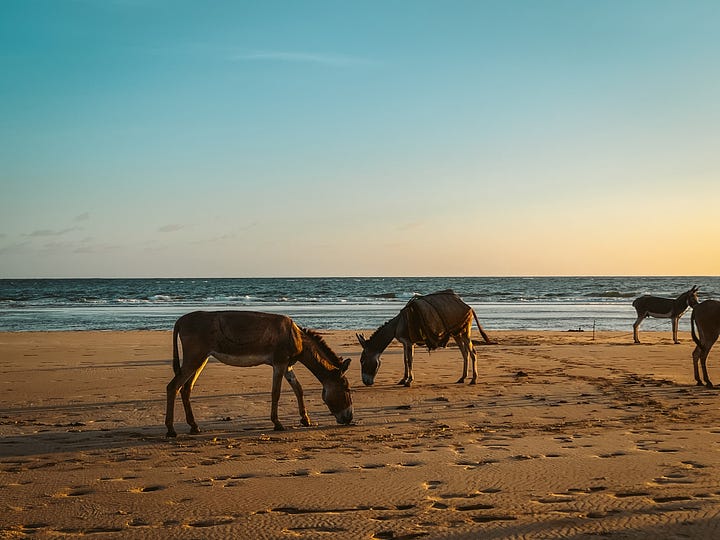
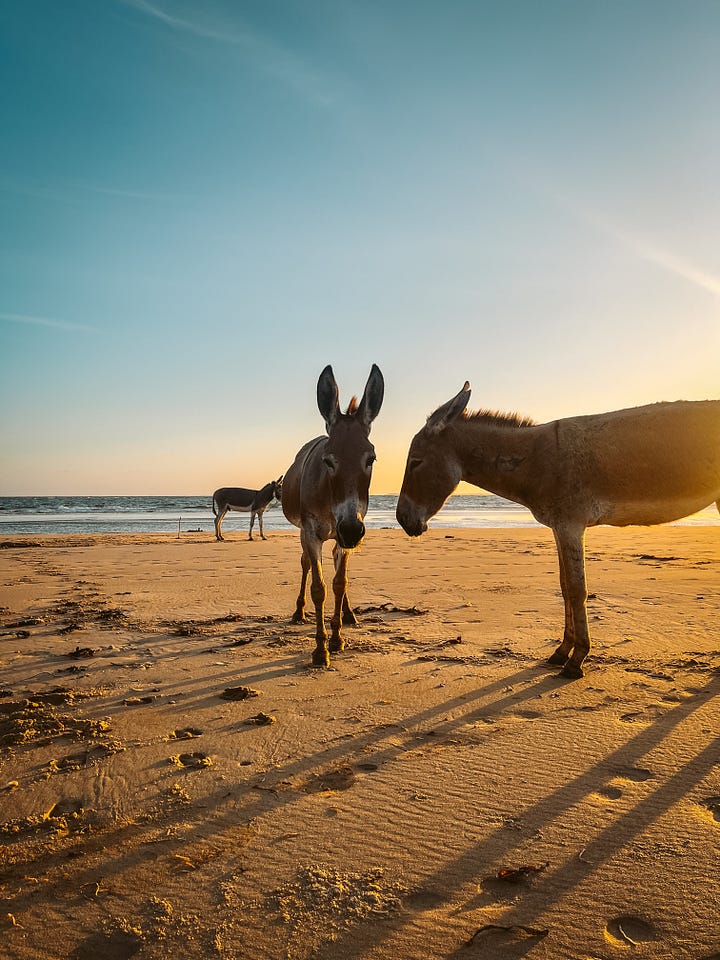
As well as donkeys, boats are an integral part of life in Lamu, and after two weeks there it‘s safe to say that we got to know most of the captains by name. Most boats are small, colorful, and extremely well-kept motorboats, but it‘s the „dhows“ that are special here. Dhows were the largest traditional boats of the Indian Ocean, once used to transport exotic spices and goods between East Africa, Asia and Arabia. While they are somewhat rare to come across these days, you will still find quite a few in Lamu. They are beautiful wooden sailboats that are still hand crafted by locals to this day. As well as admiring them from the beach every day while they would silently sail by at almost arms reach, we also took a dhow one evening to enjoy the sunset. It definitely comes in as one of the must-dos while in Lamu, and what a treat!
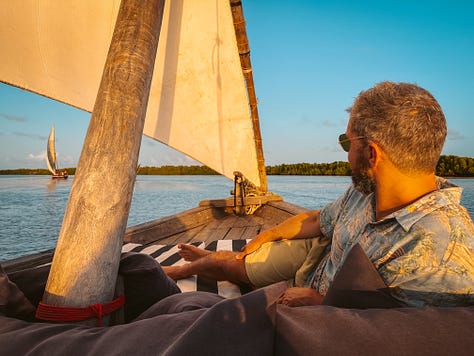
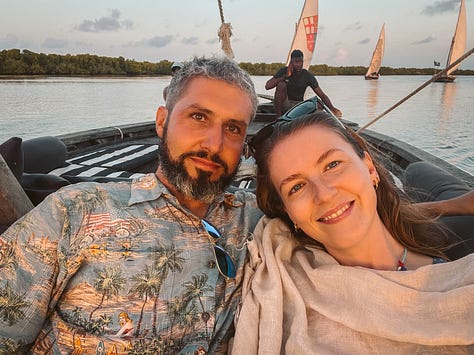
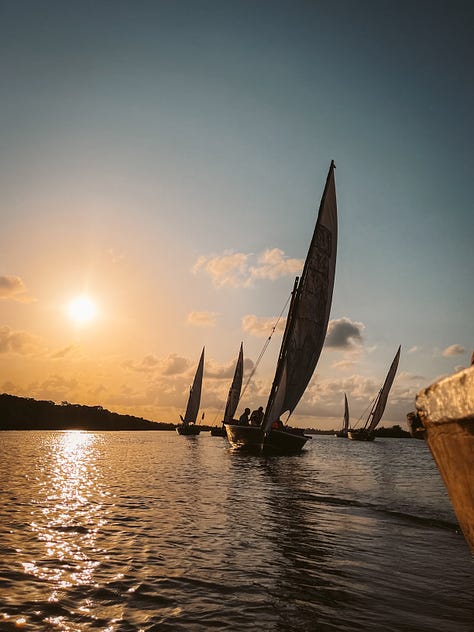
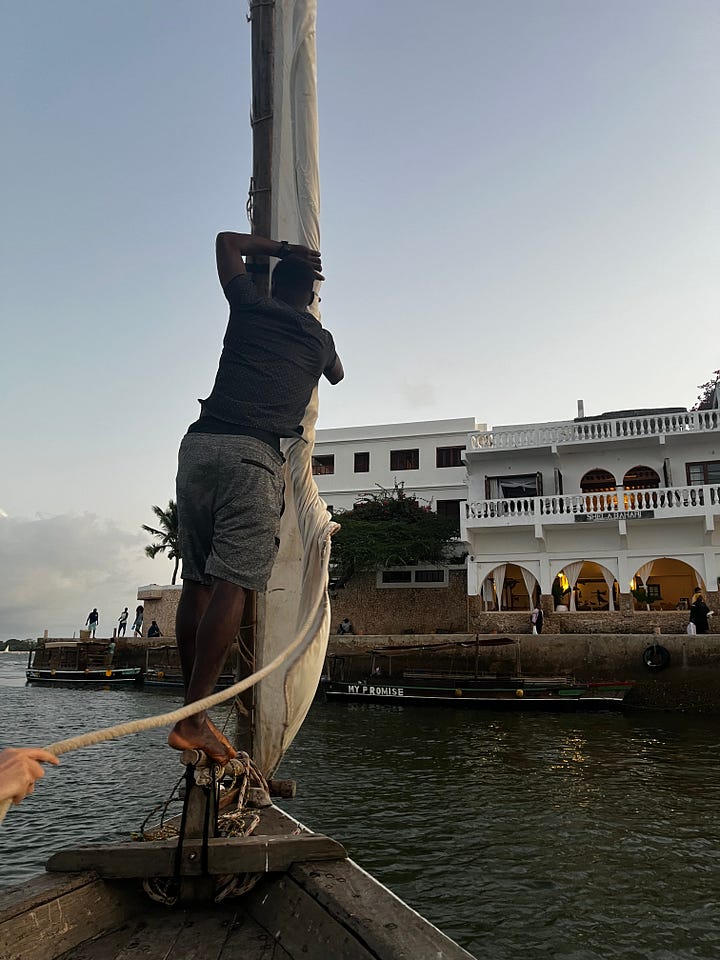
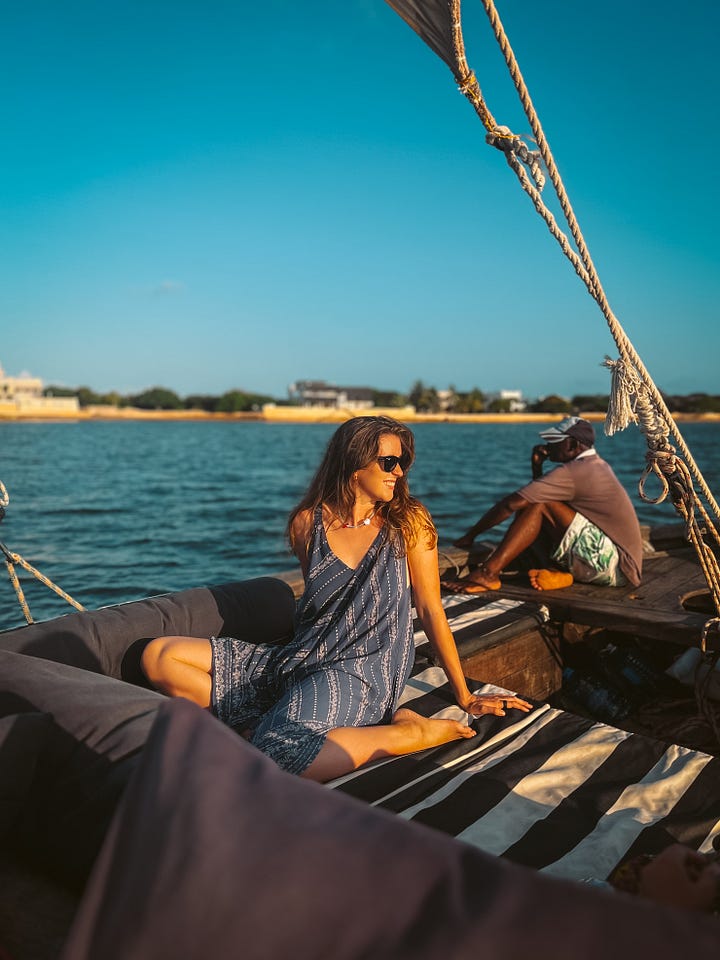
Now if you‘re a cat freak like at least one of us, you‘re going to love Shela. The selection of high quality cats on every corner is out of this world. Now, they would wreck your head fighting during the night (it’s not great that there are so many of them in such a small space), but during the day they are a cuddly delight. You can quite literally lie on the beach and use a cat as a pillow. Other animals you are likely to come across on the beach are camels and cows - not so pillow friendly, but a joy all the same.

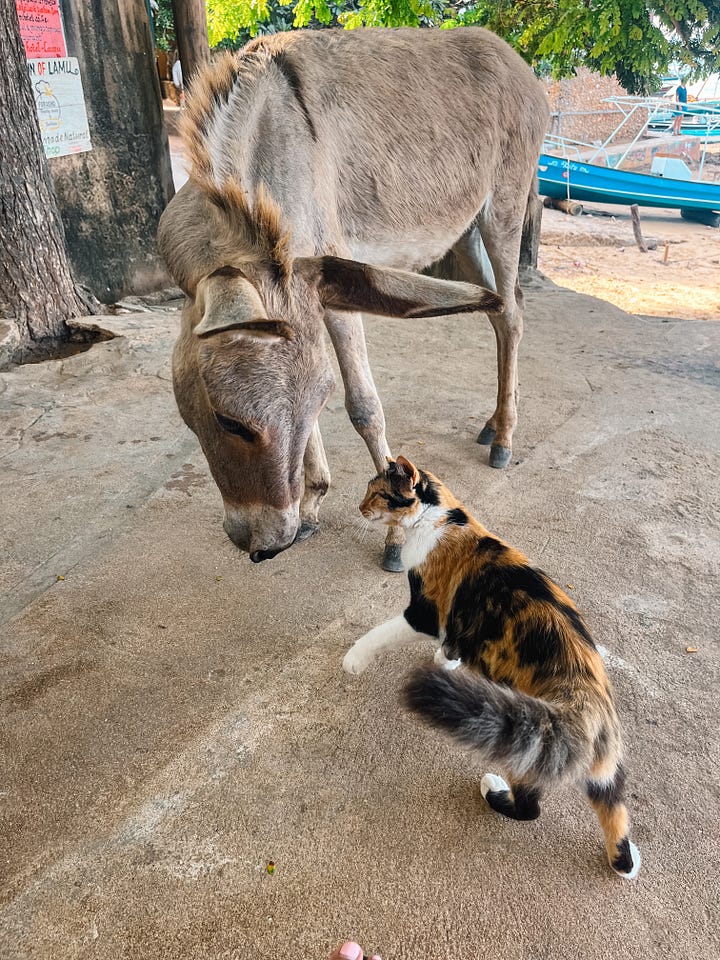
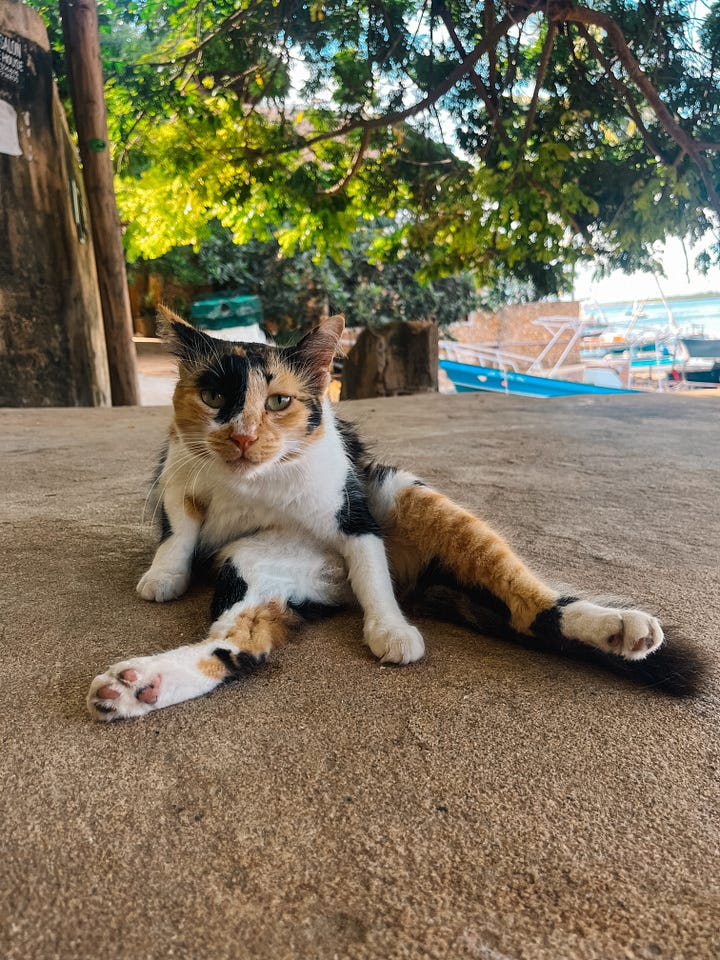
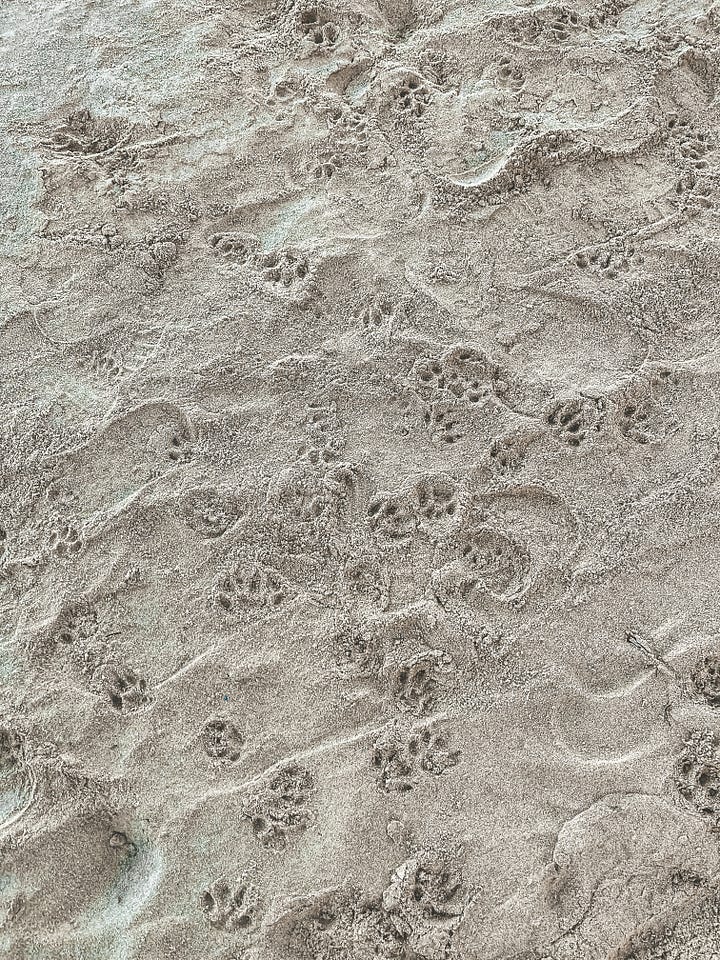
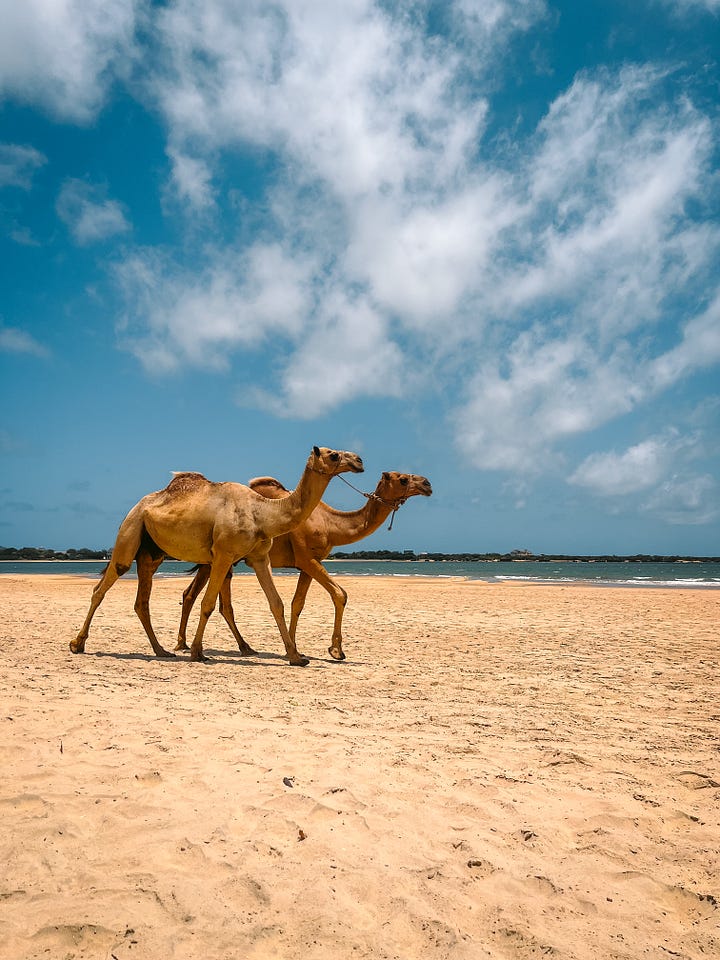
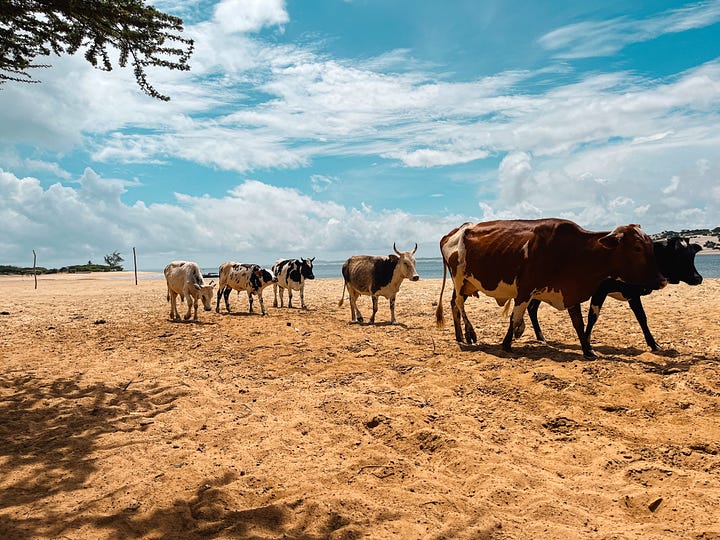
The buildings on Lamu are still built with the same material they used centuries ago. They are built using coral stone, which is a common Swahili feature. Coral stone is strong, a few degrees colder than cement, and is available in abundance on the nearby Manda island. The stone has a long history in the construction of Lamu, evidenced by coral ruins dating back to the 16th century, relics of an ancient commercial hub. Every day in Shela you will see donkeys transporting coral blocks in weaved baskets tied to their backs, snaking their way through the alleyways. The buildings themselves are finished with either coral or lime, and are often left with openings as opposed to windows, and open-air interior courtyards, which makes for a nice breeze through the buildings.
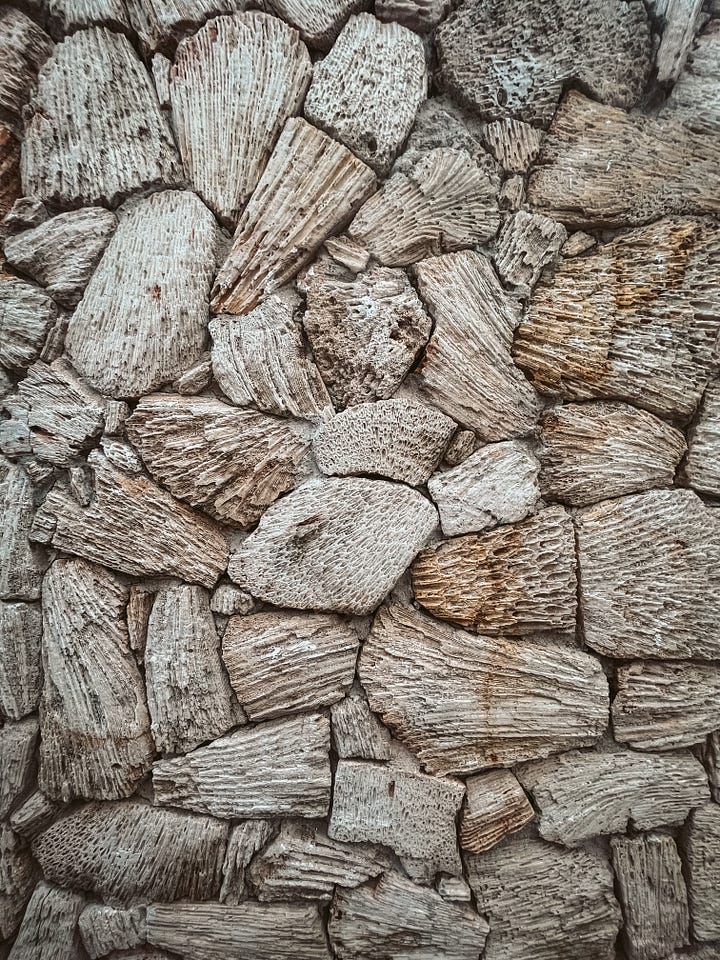
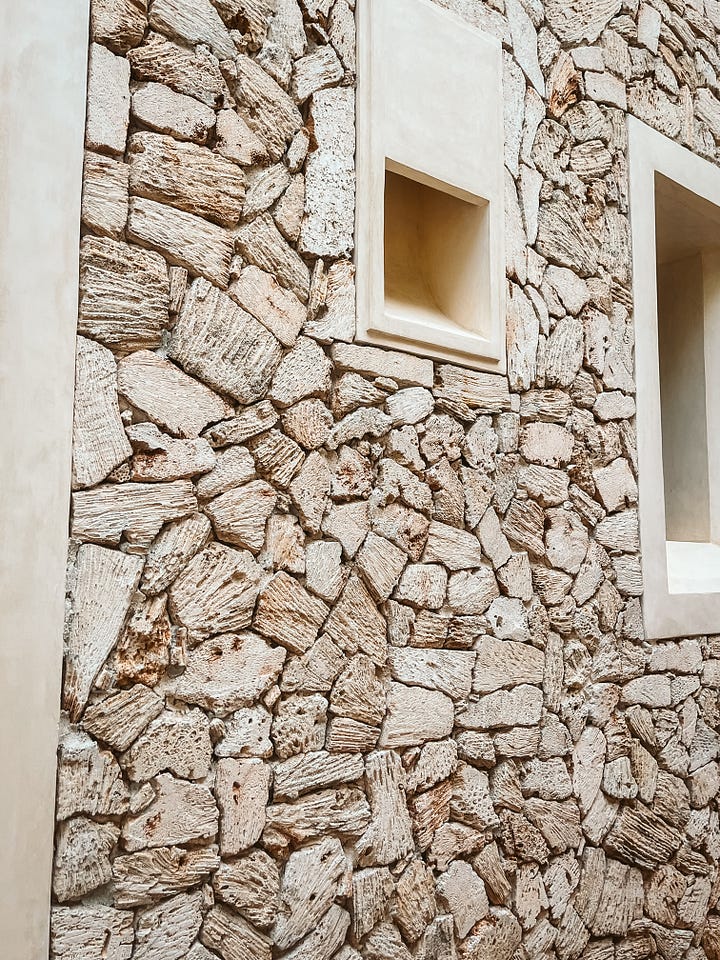
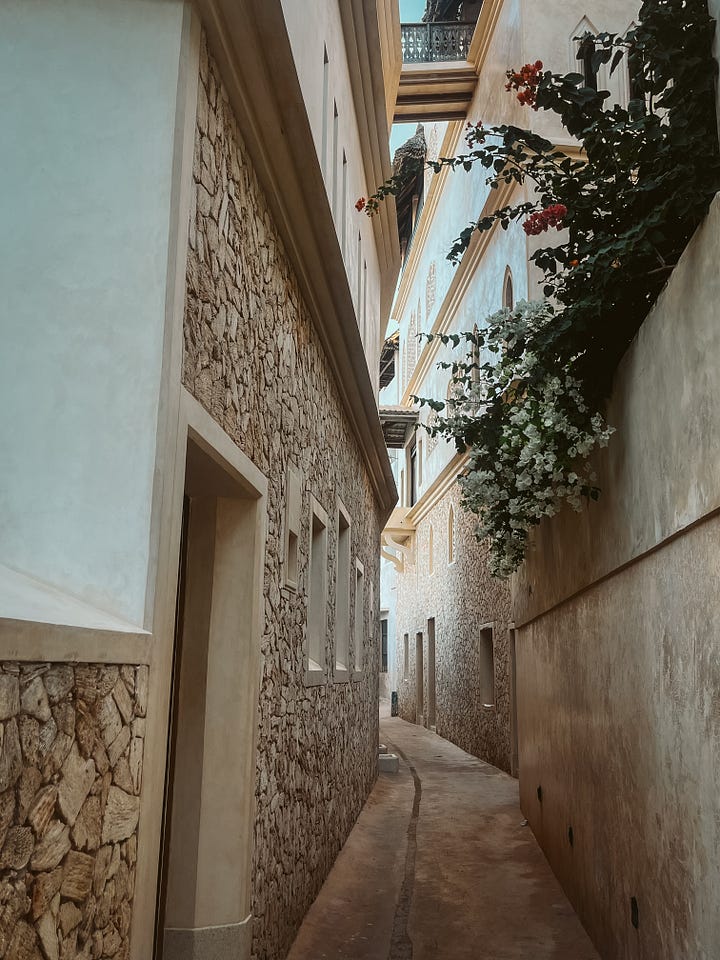
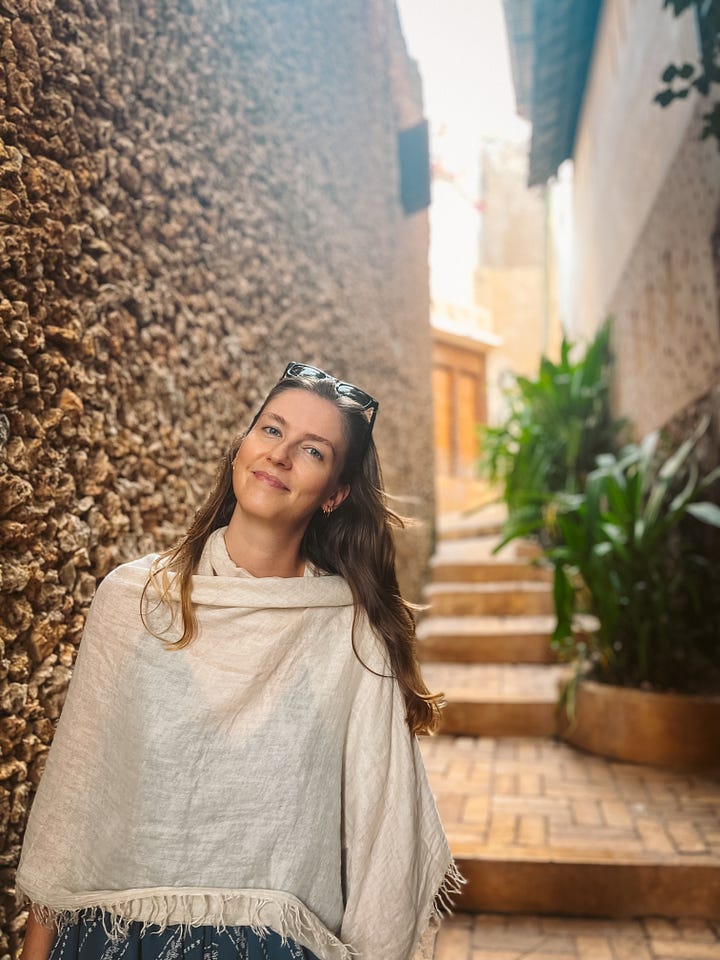
The people of Lamu are predominantly Muslim people and Lamu town holds major religious festivals, as well as being a significant centre for the study of Islamic culture. While we were on the island the annual Maulidi festival was taking place. Muslims from all over come to the Maulidi celebration to mark the birth of the Prophet Mohamed. All sorts of events take place during the Maulidi festival, but apparently the real show stopper is the donkey race, which we unfortunately missed.
One really special thing about Shela is that everyone meets at the beach towards sunset every day. You can almost guarantee that you will see all of the town‘s characters there every evening, as well as the few tourists you‘ve seen going around. Shela is so small that everyone knows everyone, and the locals all know what you have been up to. You quite literally cannot hide, especially from „The Samosa Man“. Mohammad chases you around the alleys of Shela with his basket of (delicious!) samosas, the most insistent salesman you could ever meet. When you tell him that perhaps you will buy a few samosas later, you can be sure that he will find you later, and that you will be guilt-tripped into buying some. In fact one day he even chased us to our room in our tower house to sell us samosas! You have to admire his dedication. But probably the coolest thing in Shela is how easy it is to make friends there. The locals are so friendly and welcoming. While walking on the beach during our first day there we met Madli, and we ended up hanging out with him most days during the two weeks. Madli owns the only kite-surfing school on Lamu, which meant that it didn‘t take long for himself and Dominik to become friends. While we were there Dominik built a website for him to help promote his kite-surfing school - if you ever find yourself in Lamu and would like to try kitesurfing, be sure to contact Madli.
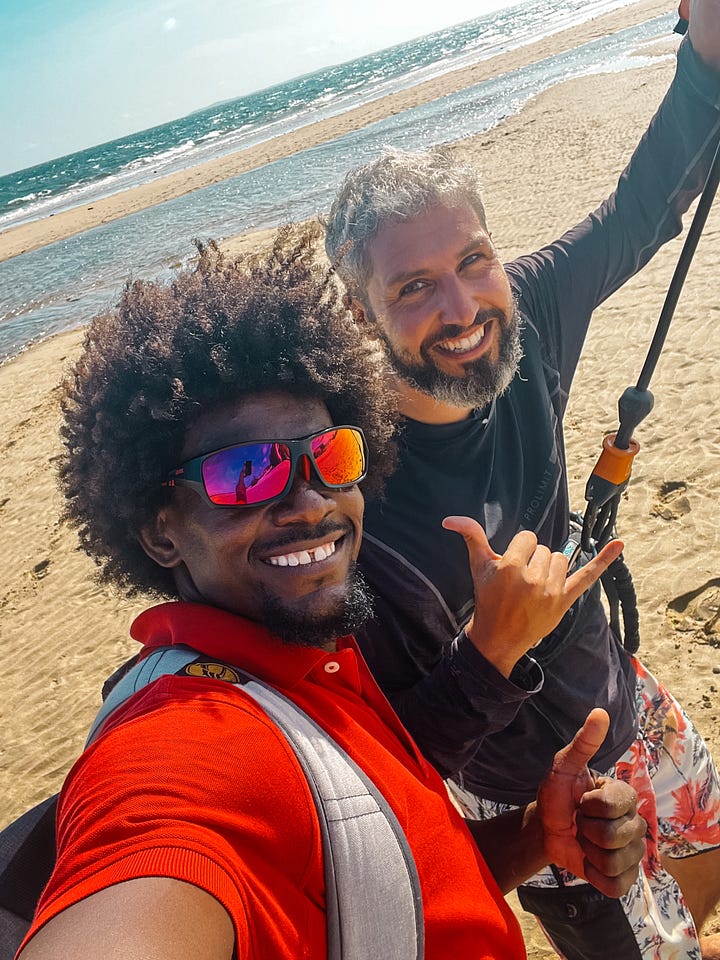
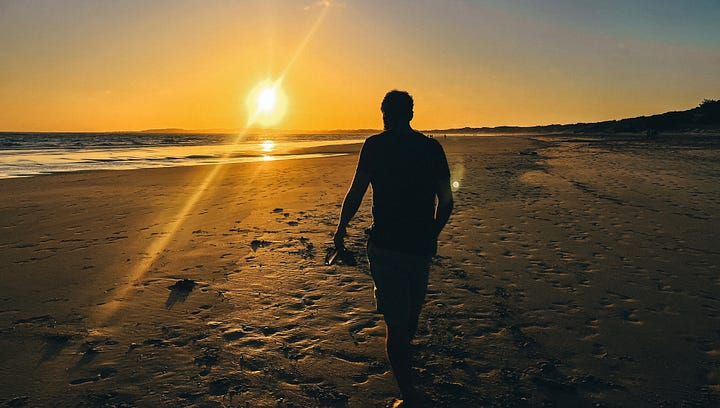
There are so many wonderful things to tell about Lamu, it‘s not possible to describe them all in detail in one article. Like the amazing food straight from the sea; the kilometers of pristine and stunningly beautiful beaches (we‘ve heard it‘s similar to Zanzibar, but without the tourists); the massive sanddunes that will have your calves burning if you dare to climb them; and Hotel Peponi‘s on the seafront - the place to be for sunset drinks and amazing food and ambiance. We could go on, but we’ll leave it there. Let us know if you are ever going to Lamu, we would have so much to tell you…
We miss you sweet Lamu!














